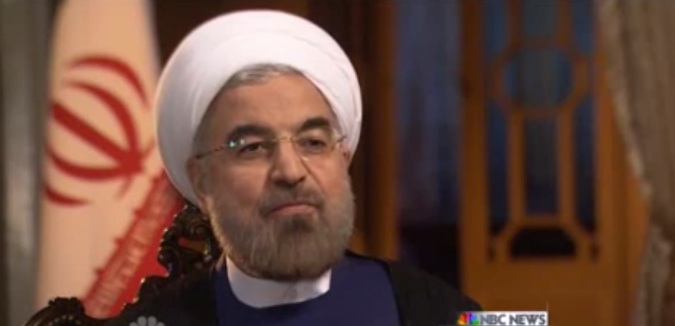Iranian media on Friday boasted that sanctions relief provided under the interim Joint Plan of Action (JPA) has allowed the country’s crude oil exports to soar, according to Iranian Deputy Oil Minister Mansour Moazzami:
Mansour Moazzami said on Friday that Iran’s crude oil exports stood at 700,000 bpd when President Hassan Rouhani took office in August 2013.
“The volume of crude oil and gas condensate exports has doubled,” he said, adding that Iran is currently exporting 1.4 million bpd of crude oil and gas condensate.
Moazzami said Iran earned USD 10 billion more than envisaged in the annual budget law for the last calendar year, which ended on March 20.
The PressTV report gestured toward figures recently released by the International Energy Agency (IEA), which calculated that Iran’s February oil exports had hit a 20-month high and were far in excess of the levels set by the JPA’s “sanctions cap.”
Meanwhile a separate PressTV article bragged that private Indian refiner Essar Oil – which it described as “Iran’s top Indian client” – had “imported six times more crude oil from the Islamic Republic in March 2014 compared to March 2013.” The outlet noted that the amount was “the highest monthly shipment since at least January 2011.”
Reuters had already reported by the end of March that Iran was expected to exceed the sanctions cap for the fifth straight month. The White House has insisted that it would continue to enforce remaining sanctions on Iran in order to preserve Western leverage in the context of ongoing nuclear talks. Administration officials have brushed off Tehran’s sanctions-busting energy exports by declaring that they expect the flow of Iranian oil to dramatically decrease in the coming months, such that by the end of the JPA’s six-month period the average amount of exported oil will have fallen within permitted levels.
It is not clear what the administration will do if Iran continues behaving exactly as it is behaving. February – the fourth month in a row that Iran had busted through the sanctions limits – had already seen analysts calling for the administration to take action on the issue.
Nat Kern, head of the Washington-based energy consulting firm Foreign Reports, speaking to the Washington Post, warned about the pattern:
“The numbers should be a red flag for the administration,” said Nat Kern, who heads Foreign Reports. “What is the U.S. going to do at the end of May if Iran has punched such a deep hole through the core sanctions on oil? The horse would be out of the barn.”
[Photo: Daily VDO / YouTube]




